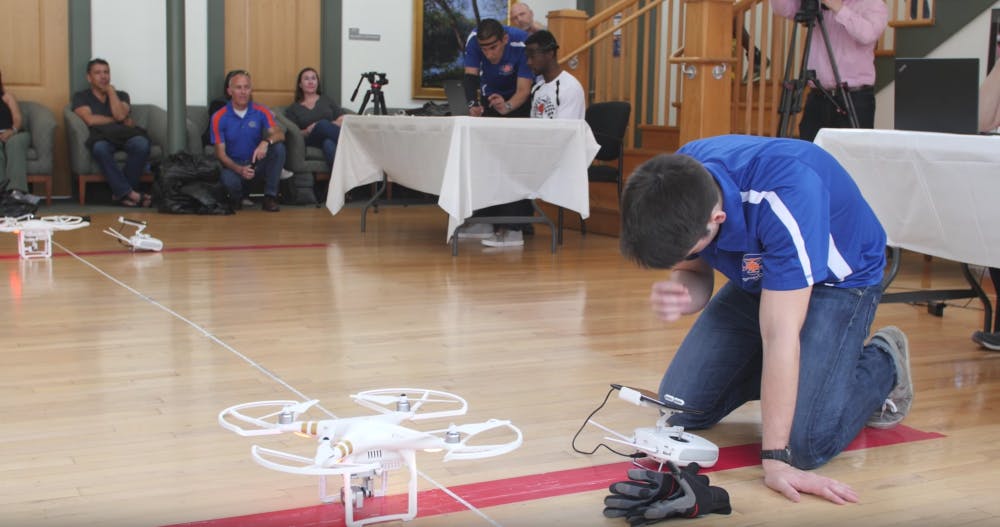As about 15 UF students raced drones across Ustler Hall, no remotes could be seen.
The racers were moving the machines with their brains.
A group of UF doctoral candidates in the UF Department of Computer and Information Science and Engineering have been working since 2012 to develop a way for people to control drones with their minds. For Marvin Andujar, 27, the technology will help increase people’s concentration and allow those with physical disabilities to participate as an equal in a sport.
In April, Andujar joined forces with Chris Crawford, 26, and France Jackson, 27, and used the technology to start the world’s first brain-drone race.
“Everybody can compete,” Andujar said. “All you need is a brain.”
Participants wore a band of sensors around their forehead, which read signals from their brain. They were shown an object on a computer and thought about pushing it, said Juan Gilbert, the department chair. The sensors informed the computer that the person’s brain signaled something to move.
After the computer understood the signals, the drone was connected and moved with the object on the screen, Gilbert said.
Andujar said a second race is scheduled for April 2017, he said.
“We’re so proud of how successful it was,” he said. “There was some people who didn’t believe that this was possible.”






